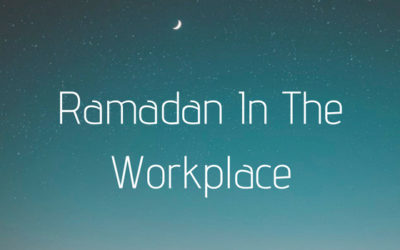Freedom of speech is a fundamental human right that is enshrined in many national and international laws and declarations. However, when it comes to freedom of speech in the workplace, this right can be a bit more complicated.
We take a closer look at employee’s freedom of speech and question whether it really does exist.
Expressing your views
It’s important that employers provide a platform for employees to give feedback and express the way they are feeling. However, this doesn’t necessarily mean that there should be total freedom of speech.
Discussing work-related issues and personal dis-satisfaction is one thing, but expressing controversial or offensive opinions is something very different.
In their private lives, employees may choose to hold discriminatory, sexist or racist opinions. However, freedom of speech in the workplace does not extend to cover this kind of offensive conversation.
Legislation
The Human Rights Act (HRA) specifies that individuals should have the right to freedom of expression. However, there are limitations to how and where this would apply. It would be a very unusual tribunal finding that would support an employee’s rights to hate speech, despite what the HRA says.
The Employment Equality (Religion or Belief) Regulations also provided protection for individuals against any unfair treatment or abuse as a result of their “religion, religious belief or similar philosophical belief”.
However, this statute provides protection from persecution not the right to force their faith or beliefs on anyone else.
In addition, during test cases, it was found that the protection of this particular piece of legislation wasn’t considered as extending to cover extreme right-wing views, such as membership of the BNP.
What an employer can do
It’s important strike a balance between protecting employees from harmful speech and allowing them to express their freedom of speech in the workplace. However, employers have a responsibility to ensure that their employees are not subjected to harassment or discrimination. In some cases, this may mean implementing policies and procedures.
Employers may also have to take action if an employee’s speech is causing harm or disrupting the workplace. This applies even if that speech is otherwise protected by law.
However, it is important to note that not all speech is protected by law, even in the workplace. For example, hate speech, incitement to violence, and defamation are all illegal and can result in legal action being taken against the speaker.
Additionally, the expression of any opinion which is offensive, defamatory or discriminatory in any way could also lead to disciplinary action against the employee who expressed it. There’s a variety of reasons this could happen; an employer’s code of conduct may specifically cite bullying or offensive comments as misconduct. Alternatively, the individuals who have been affected by the opinions could also raise a grievance. Employees who make statements that damage their employer’s reputation or reveal confidential information may also face disciplinary action.
Even views which aren’t intended to be offensive could be prohibited at work. For example, an individual who forces their opinions onto their colleagues. Doing so could be viewed as harassment and disciplinary action could be pursued as a result.
For employers
It’s clear from the above, that there’s no real freedom of speech in the workplace for employees, but what about employers?
Despite making the rules, employers don’t have everything their own way and have to be respectful of employees. Expressing opinions which are discriminatory or offensive in any way could very easily leave them open to legal action or a tribunal from disgruntled employees. In addition, the same principles about harassment or bullying would apply.
Conclusion
In conclusion, freedom of speech in the workplace is a complex issue that requires a delicate balancing act between different rights and responsibilities. While employees have the right to express themselves freely, this right is not absolute. Therefore, employers have a responsibility to ensure that their workplace is safe, respectful, and free from harm. Ultimately, it is up to both employees and employers to work together to create a workplace culture that respects everyone’s rights and promotes open and honest communication.
Contact Us
For more information on freedom of speech in the workplace, contact us. Our team are here to answer any questions you have.







